- Home
- William Shakespeare
Henry V
Henry V Read online
The RSC Shakespeare
Edited by Jonathan Bate and Eric Rasmussen
Chief Associate Editors: Heloise Senechal and Jan Sewell
Associate Editors: Trey Jansen, Eleanor Lowe, Lucy Munro, Dee Anna Phares
Henry V
Textual editing: Eric Rasmussen
Introduction and Shakespeare's Career in the Theater: Jonathan Bate
Commentary: Esme Miskimmin and Heloise Senechal
Scene-by-Scene Analysis: Esme Miskimmin
In Performance: Karin Brown (RSC stagings), Jan Sewell (overview)
The Director's Cut (interviews by Jonathan Bate and Kevin Wright): Kenneth Branagh, Ed Hall, Nicholas Hytner, Michael Boyd
Editorial Advisory Board
Gregory Doran, Chief Associate Director,
Royal Shakespeare Company
Jim Davis, Professor of Theatre Studies, University of Warwick, UK
Charles Edelman, Senior Lecturer, Edith Cowan University,
Western Australia
Lukas Erne, Professor of Modern English Literature,
Universite de Geneve, Switzerland
Akiko Kusunoki, Tokyo Woman's Christian University, Japan
Jacqui O'Hanlon, Director of Education, Royal Shakespeare Company
Ron Rosenbaum, author and journalist, New York, USA
James Shapiro, Professor of English and Comparative Literature,
Columbia University, USA
Tiffany Stern, Professor of English, University of Oxford, UK
2010 Modern Library Paperback Edition Copyright (c) 2007, 2010 by The Royal Shakespeare Company All rights reserved.
Published in the United States by Modern Library, an imprint of
The Random House Publishing Group, a division of
Random House, Inc., New York.
MODERN LIBRARY and the TORCHBEARER Design are registered trademarks of Random House, Inc.
"Royal Shakespeare Company," "RSC," and the RSC logo are trademarks or registered trademarks of The Royal Shakespeare Company.
The version of Henry V and the corresponding footnotes that appear in this volume were originally published in William Shakespeare: Complete Works, edited by Jonathan Bate and Eric Rasmussen, published in 2007 by Modern Library, an imprint of The Random House Publishing Group, a division of Random House, Inc.
eISBN: 978-1-58836846-1
www.modernlibrary.com
v3.1
CONTENTS
Cover
Title Page
Copyright
Introduction
The Theater of War
"Thou Idle Ceremony"
"The General of Our Gracious Empress"
"What Ish My Nation?"
About the Text
Key Facts
The Life of Henry the Fifth
List of Parts
Prologue
Act 1
Scene 1
Scene 2
Act 2
Scene 1
Scene 2
Scene 3
Scene 4
Act 3
Scene 1
Scene 2
Scene 3
Scene 4
Scene 5
Scene 6
Scene 7
Act 4
Scene 1
Scene 2
Scene 3
Scene 4
Scene 5
Scene 6
Scene 7
Scene 8
Act 5
Scene 1
Scene 2
Textual Notes
Synopses of the Two Parts of Henry IV
Scene-by-Scene Analysis
Henry V in Performance: The RSC and Beyond
Four Centuries of Henry V: An Overview
At the RSC
The Director's Cut: Interviews with Kenneth Branagh, Edward Hall, Nicholas Hytner, and Michael Boyd
Shakespeare's Career in the Theater
Beginnings
Playhouses
The Ensemble at Work
The King's Man
Shakespeare's Works: A Chronology
Kings and Queens of England: From the History Plays to Shakespeare's Lifetime
The History Behind the Histories: A Chronology
Further Reading and Viewing
References
Acknowledgments and Picture Credits
INTRODUCTION
THE THEATER OF WAR
Henry V has become synonymous with English patriotism. A dashing young king achieves a stunning military victory against all odds, stirring his men to impossible valor through sheer rhetorical force. The phrases have become legendary: "Once more unto the breach, dear friends, once more"; "Cry 'God for Harry, England, and Saint George!' "; "We few, we happy few, we band of brothers." Whereas all Shakespeare's other history plays of the 1590s portray an England riven by faction and anxiety over rightful succession to the throne, here the nation seems united and all-conquering.
Perhaps no other Shakespeare play has such a simple plot: King Harry makes his claim for France, sees off a small conspiracy, sets sail, takes Harfleur, wins the battle of Agincourt, and marries the defeated king's daughter. The cast consists almost entirely of his loyal army and his French enemies, among whom the dauphin in particular is a parodic reprise of the fiery Hotspur of Henry IV Part I. Yet, as so often with Shakespeare, a wealth of reservations are held within that "almost." Henry IV Part II had ended with an epilogue promising a continuation of the story with Sir John Falstaff in it: the fat knight's absence casts a shadow across the king's triumphs. (We do not know why Shakespeare failed to fulfill his promise: it might have been because he didn't want Falstaff's presence to overshadow the military glory, or it might have been because the comic actor for whom the part may have been written, Will Kempe, had suddenly left the company.) The play does not begin with a ceremonial entrance and a large-scale royal court scene. First the Chorus appears alone on the bare stage. The audience are invited to reflect upon the fact that what they are about to witness is performance, not reality, and that their imaginary forces will be necessary in order to transform stage and playing company into battlefield and army. The play is intended to work upon us as King Harry works upon his followers: the dazzling power of words creates the triumph out of extremely limited resources.
Between each act the Chorus returns to remind us that it is all a theatrical trick: we only suppose that we have been transported to France and that the little band of players and extras constitute a great army on the march or fighting to the death in hand-to-hand combat. Players, as Macbeth and Prospero will remind later Shakespearean audiences, are but shadows. After two or three turns of the hourglass, the revels end and the action vanishes like a dream. So too with Harry's triumph: the closing chorus, an artfully turned sonnet, compares the imaginative work of the author ("In little room confining mighty men") with the brevity of the victorious king's reign ("Small time, but in that small most greatly lived/This star of England"). Could it then be that the secret of Harry's success is linguistic might rather than the right of his cause?
The action proper commences with the representatives of the church confirming the "reformation" of the king, his conversion to piety from the "wildness" of the Henry IV plays, in which he had been seen as a wayward youth in the company of lowlife characters in London's East End. Now he has transformed himself into a master of divinity, political affairs, and the theory of war. The dialogue of the bishops also introduces another theme, familiar from the historical reformation of the sixteenth century: the sequestration of ecclesiastical assets by the state. This precipitates a political deal: the archbishop will provide legal justification for the king's proposed invasion of France and in return the crown will take the side of the church in their financial dispute
with parliament. The whole apparatus of justification by precedent, descent, and debate over the applicability of the Salic law, elaborated in the archbishop's interminable speech in the following scene, is a charade acted out for politic ends. The king has a one-line question--"May I with right and conscience make this claim?"--and he gets the answer he wants to hear: yes. He is not interested in the small print.
By starting the action with the scheming bishops, Shakespeare suggests that the motivation for war is more a matter of political pragmatism than high principle. King Harry is anxious about a possible Scottish incursion and he is aware that his own hold on the throne is insecure--hence the need to reveal the iron fist in his velvet glove by dispatching the traitors Cambridge, Scroop, and Grey. Their unmasking is achieved by means of a piece of theater that shows Harry's capacity for both mercy and stern justice. For all the talk of ancient rights to France and the need to bounce back the insult of the tennis balls, one cannot help suspecting that the real driving force behind the war is that recommended by the king's father on his deathbed:
... Therefore, my Harry,
Be it thy course to busy giddy minds
With foreign quarrels, that action, hence borne out, May waste the memory of the former days.
(Henry IV Part II, Act 4 Scene 2)
There is nothing like an overseas military adventure to unite a divided nation.
Prince Hal's riotous behavior in the Henry IV plays is now revealed to have been an elaborate game, a piece of playacting. He continues to play games once he is king: his handling of the traitors in the second act and the business of the glove in the cap after Agincourt are theatrical devices designed to demonstrate his quasi-magical power of seeing into his subjects' souls. The manner in which an actor plays the part of King Harry will be largely determined by the extent to which he plays up the character's actorliness. The wooing of Katherine is a crux in this regard: how much of a performance is the combination of charm, wit, boyish embarrassment, and delight in power ("in loving me, you should love the friend of France, for I love France so well that I will not part with a village of it")? Or is Harry genuinely smitten with Kate?
The king's mastery comes above all from what the archbishop calls "his sweet and honeyed sentences." Rhetorical force is his greatest gift: he can debate, cajole, command, inspire. Shakespeare gives him more than three times as many words as any other character in the play. Only Hamlet can match Harry in the ease with which he moves between highly wrought verse and conversational prose. Many a modern general has reached for the Crispin's day oration in preparing his men to go into battle: Laurence Olivier's 1944 film, dedicated to the British, American, and other Allied troops who were liberating Europe from the Nazis, is only the most renowned of the frequent military appropriations of the play (it was reputedly at Winston Churchill's insistence that Olivier cut the scene with the three traitors--at such a critical historical moment, there had to be unity in the Allied ranks). Even hardened cynics find themselves becoming patriotic when the king addresses his band of brothers, especially in film when the words are further pumped up by sweeping camera action and rousing music.
But the words are not just a form of music. There is sharp political intelligence at work. So, for instance, "Once more unto the breach, dear friends, once more" is carefully modulated in three parts. The "dear friends" with which it begins are the king's immediate kinsmen and closest followers. They set the lead example. Attention then turns to the aristocracy and gentry, the "noblest English," whose role is to "Be copy now to men of grosser [i.e. less high-class] blood, / And teach them how to war." Then come the "yeomen" and finally "the mean and base." All will be of "noble lustre" if they surge forward into the breach in Harfleur's wall. The speech thus enacts the chain of command down the ranks. It offers a textbook image of the officer class leading from the front by example. Even lowly Corporal Bardolph is momentarily inspired. But Nym, Pistol, and Falstaff's boy are not. They stop in their tracks and have to be physically beaten to the breach by loyal Captain Fluellen. The power of the king's rhetoric is thus called into question.
Fluellen believes in fighting war by the book. His modern equivalent would be a liberal-minded army officer intent upon fighting according to the rules of the Geneva convention. But his very mode of thinking exposes cracks in the king's moral armor. King Harry of Monmouth is compared to Alexander the Great of Macedon, not only because they are both great warriors (who both come from places beginning with "M," each of which has a river running through it, "and there is salmons in both"), but also because "as Alexander killed his friend Cleitus, being in his ales and his cups, so also Harry Monmouth, being in his right wits and his good judgements, turned away the fat knight with the great belly-doublet." The audience is thus reminded that the price of Harry's greatness is the killing of Falstaff's heart.
There is also the matter of the killing of the French prisoners, strikingly omitted not only from Olivier's wartime film but also from Kenneth Branagh's generally more hard-edged portrayal of Agincourt in his 1989 movie. For Fluellen, the French army's killing of the boys and the baggage-handlers is "expressly against the law of arms." Gower replies that, since the French have broken the rules, the English have been forced to do so as well: "wherefore the king, most worthily, hath caused every soldier to cut his prisoner's throat. O, 'tis a gallant king!" But the text is quite explicit that King Harry gives the order to kill the prisoners before he hears of the attack on the camp followers. The reason for their summary slaughter is that every last soldier is needed to cope with the arrival of French reinforcements. It is a pragmatic decision, not a gallant or a worthy one. So too at Harfleur earlier: though a threat rather than an action, the idea of raping the maidens and massacring the innocents of the city does not immediately conjure up the terms "gallant" or "worthily."
"THOU IDLE CEREMONY"
Most searching of all is the debate between the disguised Harry "le Roi" and the common soldiers, John Bates and Michael Williams, on the night before the battle. In the sixteenth century there was a heated debate about whether the law took primacy over the monarch or whether the monarch was the embodiment of the law. Was it ever justifiable to depose a monarch? If a king was unjust, then he could be described as a "tyrant." In that case, it was sometimes argued, the people, or at least the magistrates, had the right to remove him. Both biblical and classical precedents could be found for such a belief, and debates regarding it swirled in the political treatises of the sixteenth century, not least because John Calvin's Protestant theology had broken the chain of association between God, pope, and king. Shakespeare's history plays and tragedies are full of usurpers. They are usually ambitious and self-serving disciples of the much-maligned Machiavelli. But this does not make Shakespeare an uncritical apologist for the divine right of kings: when a Richard II or a Henry VI fails to fulfill the responsibilities of sovereignty, the state totters.
As the son of a usurper, Henry V is acutely conscious of the fragility of his own claim to the throne. Since he cannot rely on the theory of divine right--that belonged to Richard II, not Henry IV--he has to fall back on rational argument and what was known as "natural law" (as there is an order and a hierarchy in nature, so must there be in human society). His debate with Williams and Bates throws up some awkward questions. "Methinks I could not die anywhere so contented as in the king's company; his cause being just and his quarrel honourable" says the disguised "Harry le Roi." "That's more than we know," replies Williams: only God can ultimately judge whether the cause is just. Bates says that it is enough to "know we are the king's subjects." This has the advantage for the commoner that "If his cause be wrong, our obedience to the king wipes the crime of it out of us." Williams will not let the point go:
But if the cause be not good, the king himself hath a heavy reckoning to make, when all those legs and arms and heads, chopped off in a battle, shall join together at the latter day and cry all, "We died at such a place" -- some swearing, some crying for a surgeon, som
e upon their wives left poor behind them, some upon the debts they owe, some upon their children rawly left. I am afeard there are few die well that die in a battle, for how can they charitably dispose of anything, when blood is their argument? Now, if these men do not die well, it will be a black matter for the king that led them to it -- who to disobey were against all proportion of subjection.
Henry replies with a series of analogies seeking to prove that "Every subject's duty is the king's, but every subject's soul is his own." He is, however, shaken by the debate, and in soliloquy after the common soldiers have left he confronts the possibility that the whole edifice of sovereignty is nothing more than a quasi-theatrical performance:
And what have kings, that privates have not too, Save ceremony, save general ceremony?
And what art thou, thou idle ceremony?
What kind of god art thou, that suffer'st more
Of mortal griefs than do thy worshippers?
What are thy rents? What are thy comings in?
O ceremony, show me but thy worth.
What? Is thy soul of adoration?
Art thou aught else but place, degree and form,
Creating awe and fear in other men?
Wherein thou art less happy being feared
Than they in fearing.
What drink'st thou oft, instead of homage sweet, But poisoned flattery? O, be sick, great greatness, And bid thy ceremony give thee cure!
What would a king be without "ceremony"--without coronations and state funerals, investitures and rituals of obligation? What would be the basis of sovereignty if ceremony were seen as an idle waste of time or even, by punning implication, as an "idol," a false God worshipped in place of the true God before whom all men and women should show equal humility? The notion that the "ceremony" on which kingship depends may be a device for the creation of "awe and fear in other men" is deeply Machiavellian. It is a sign of Shakespeare's deep political cunning that he should have put this thought into the mouth of his most heroic king, not that of one of his Machiavellian schemers or usurpers (let alone the mouth of Machiavelli himself, as Christopher Marlowe had done in the prologue to his hugely successful Jew of Malta).
After the battle, the king succeeds in embarrassing, and, with typical double-handedness, then offering to reward, Williams. But he never finds a full answer to the point: every subject's duty is the king's while every subject's soul is his own, but the fact remains that bloody battle is not a place for "dying well" in the sense of drawing up one's spiritual accounts and making peace with God.

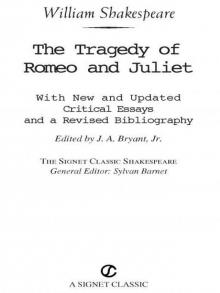 Romeo and Juliet
Romeo and Juliet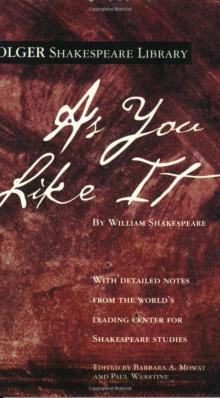 As You Like It (Folger Shakespeare Library)
As You Like It (Folger Shakespeare Library)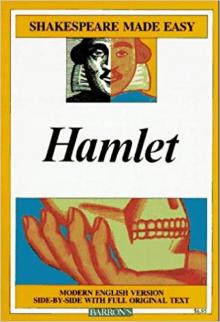 Hamlet
Hamlet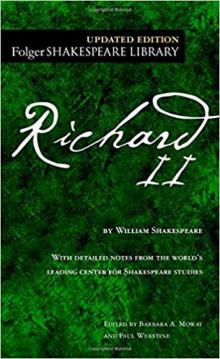 Richard II (Folger Shakespeare Library)
Richard II (Folger Shakespeare Library) Macbeth
Macbeth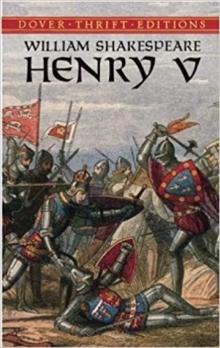 Henry V
Henry V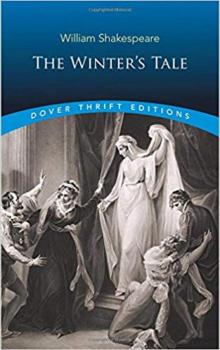 The Winter's Tale
The Winter's Tale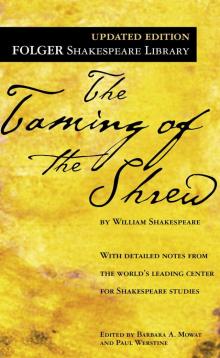 The Taming of the Shrew
The Taming of the Shrew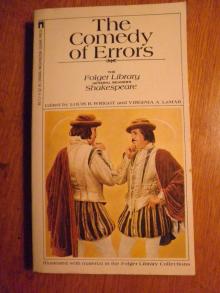 The Comedy of Errors
The Comedy of Errors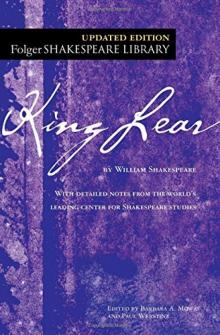 King Lear (Folger Shakespeare Library)
King Lear (Folger Shakespeare Library)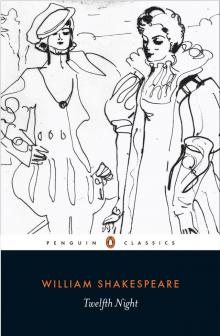 Twelfth Night
Twelfth Night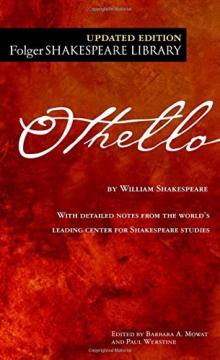 Othello
Othello The Two Gentlemen of Verona
The Two Gentlemen of Verona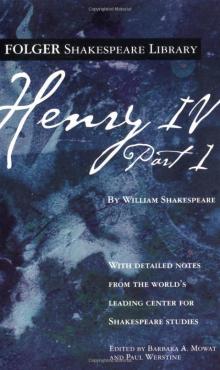 Henry IV, Part 1 (Folger Shakespeare Library)
Henry IV, Part 1 (Folger Shakespeare Library)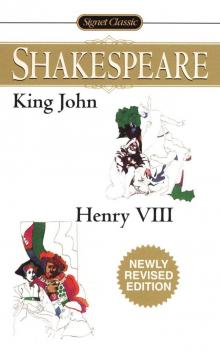 King John/Henry VIII (Signet Classics)
King John/Henry VIII (Signet Classics)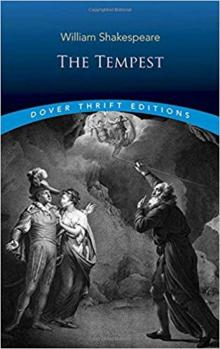 The Tempest
The Tempest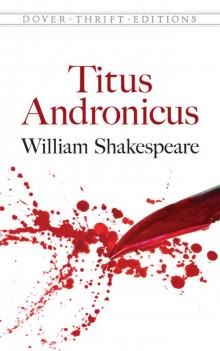 Titus Andronicus (Dover Publications)
Titus Andronicus (Dover Publications)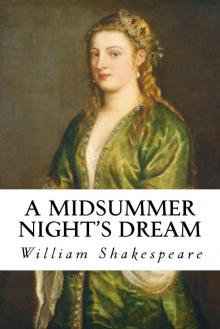 A Midsummer Night's Dream
A Midsummer Night's Dream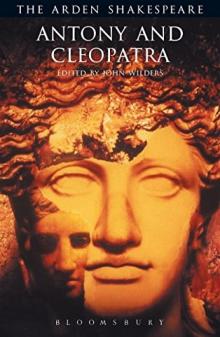 Antony and Cleopatra (Arden Shakespeare: Third Series)
Antony and Cleopatra (Arden Shakespeare: Third Series)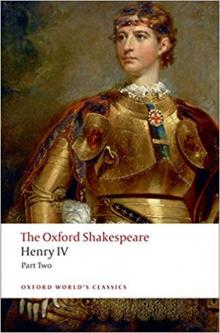 The Oxford Shakespeare: Henry IV, Part 2 (Oxford World's Classics)
The Oxford Shakespeare: Henry IV, Part 2 (Oxford World's Classics)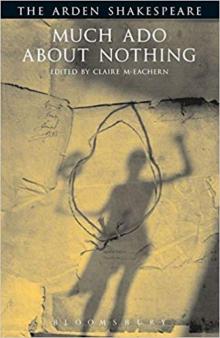 Much Ado About Nothing (Arden Shakespeare: Third Series)
Much Ado About Nothing (Arden Shakespeare: Third Series)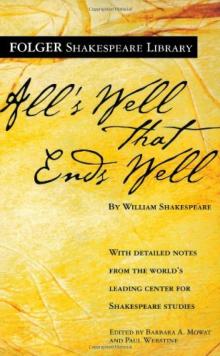 All's Well That Ends Well
All's Well That Ends Well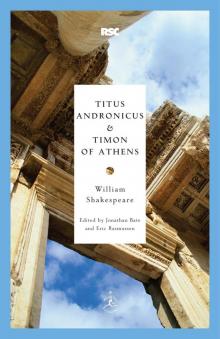 Titus Andronicus & Timon of Athens
Titus Andronicus & Timon of Athens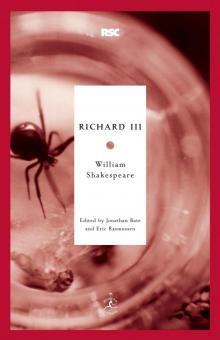 Richard III (Modern Library Classics)
Richard III (Modern Library Classics)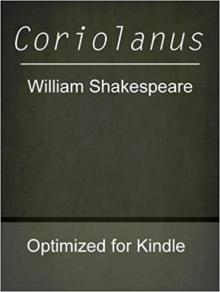 Coriolanus
Coriolanus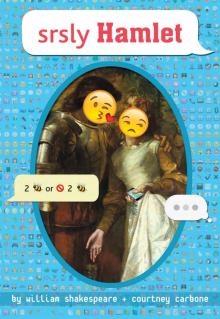 srsly Hamlet (OMG Shakespeare)
srsly Hamlet (OMG Shakespeare)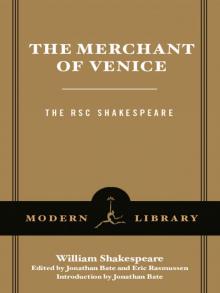 The Merchant of Venice
The Merchant of Venice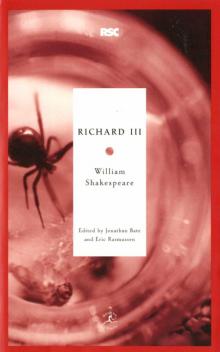 Richard III
Richard III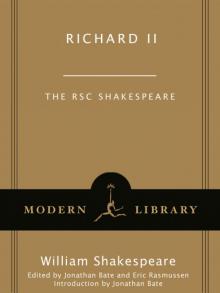 Richard II
Richard II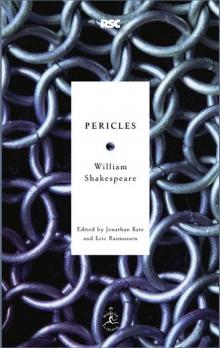 Pericles
Pericles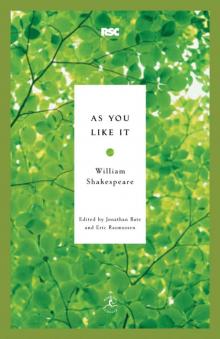 As You Like It
As You Like It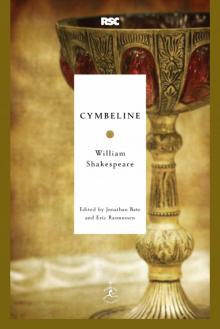 Cymbeline
Cymbeline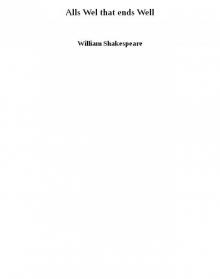 Alls Wel that ends Well
Alls Wel that ends Well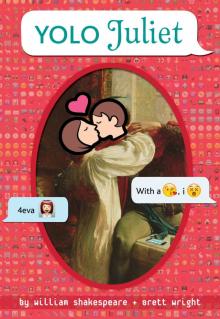 YOLO Juliet
YOLO Juliet A Midsummer Night #nofilter
A Midsummer Night #nofilter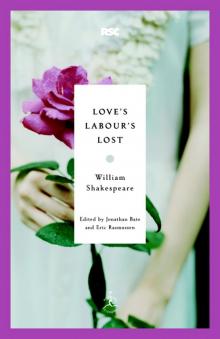 Love's Labour's Lost
Love's Labour's Lost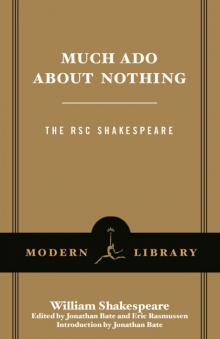 Much Ado About Nothing
Much Ado About Nothing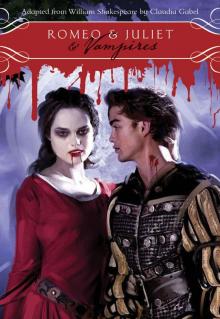 Romeo & Juliet & Vampires
Romeo & Juliet & Vampires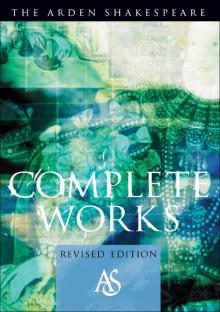 The Arden Shakespeare Complete Works
The Arden Shakespeare Complete Works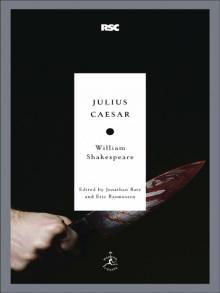 Julius Caesar
Julius Caesar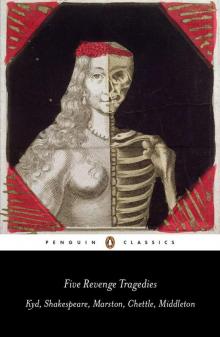 Five Revenge Tragedies: The Spanish Tragedy, Hamlet, Antonio's Revenge, The Tragedy of Hoffman, The Revenger's Tragedy (Penguin Classics)
Five Revenge Tragedies: The Spanish Tragedy, Hamlet, Antonio's Revenge, The Tragedy of Hoffman, The Revenger's Tragedy (Penguin Classics)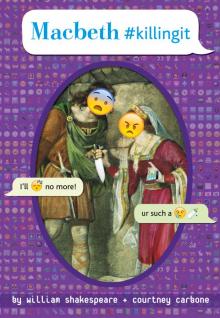 Macbeth #killingit
Macbeth #killingit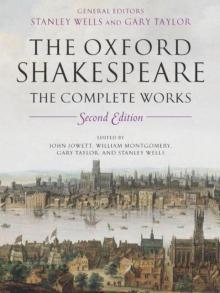 The Oxford Shakespeare: The Complete Works
The Oxford Shakespeare: The Complete Works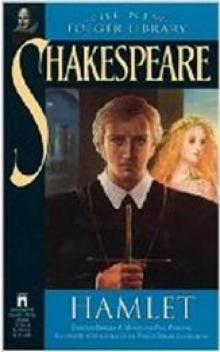 Hamlet, Prince of Denmark (Collins edition)
Hamlet, Prince of Denmark (Collins edition)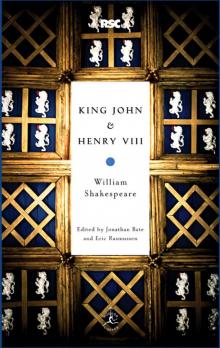 King John & Henry VIII
King John & Henry VIII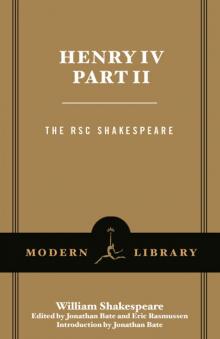 Henry IV, Part 2
Henry IV, Part 2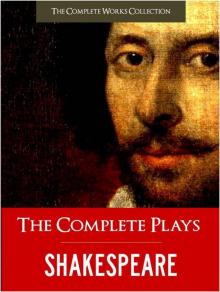 Complete Plays, The
Complete Plays, The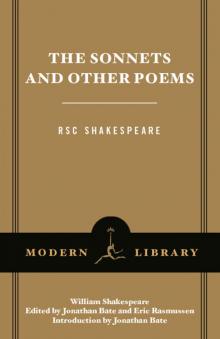 The Sonnets and Other Poems
The Sonnets and Other Poems Antony and Cleopatra
Antony and Cleopatra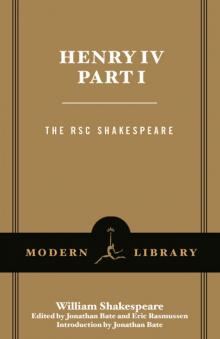 Henry IV, Part 1
Henry IV, Part 1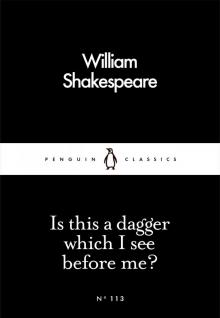 Is This a Dagger Which I See Before Me?
Is This a Dagger Which I See Before Me?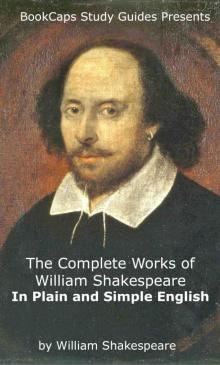 The Complete Works of William Shakespeare In Plain and Simple English (Translated)
The Complete Works of William Shakespeare In Plain and Simple English (Translated)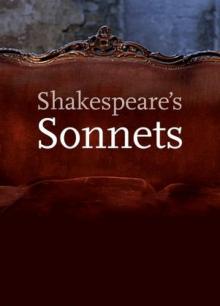 The Sonnets
The Sonnets